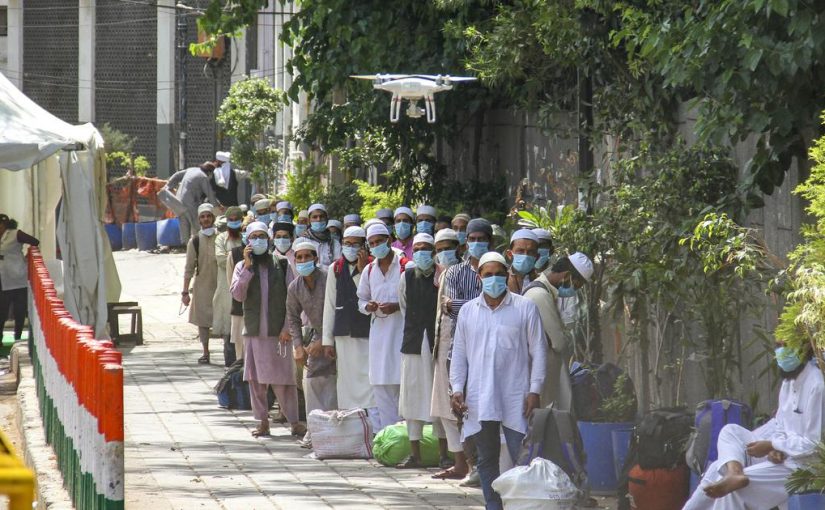The Tablighi Jamaat congregation in Nizamuddin, Delhi, in March was blamed for thousands of coronavirus infections around the country in the initial weeks of the nationwide lockdown which began on March 25
The court said ‘freedom of speech is one of the most abused freedoms in recent times’.
The Supreme Court on Thursday pulled up the Centre for filing an affidavit stating that there “were no instances of bad reporting” on the Tablighi Jamaat congregation, Bar and Bench reported. The court also lashed out at Solicitor General Tushar Mehta as the affidavit had been filed by a junior-level officer.
“You cannot treat the court how you are treating it,” Chief Justice of India Sharad Arvind Bobde told Mehta. “The affidavit is by some junior officer. The affidavit is evasive and says the petitioner shows no instance of bad reporting. You may not agree, but how you can say there is no instance of bad reporting shown?”
Mehta said that a secretary-level officer will file a fresh affidavit and he would vet it.
A petition was filed by the Jamaat Ulema-i-Hind against the communalisation of the Tablighi Jamaat gathering held in Nizamuddin area of Delhi during the coronavirus-induced lockdown in March.
The petition stated that the media had “demonised the Muslim community” and sought strict action against those who spread bigotry and communal hatred.
Referring to Section 20 of the Cable Television Networks (Regulation) Act, 1995, the Supreme Court noted on Thursday that the Act only covers cable television signals, and asked if the government had the power to ban such signals. “This power is exercisable only in relation to cable TV networks and not in relation to TV signals like Doordarshan etc,” Bobde said. “Does the government have any power to ban the signals? Their affidavit says they had issued advisories.”
As the hearing neared its end, Bobde observed: “Freedom of speech is one of the most abused freedoms in recent times.”
The court will now hear the matter after two weeks.
The Tablighi Jamaat event
The Tablighi Jamaat congregation in Nizamuddin, Delhi, in March was blamed for thousands of coronavirus infections around the country in the initial weeks of the nationwide lockdown which began on March 25. The congregation was attended by many foreigners. The Tablighi Jamaat is a Sunni Muslim sect with followers in over 80 countries.
Some sections of the media had linked the congregation to a rise in the spread of the coronavirus cases. Last month, the Centre had also informed the Rajya Sabha that the gathering led to a spurt in cases.
In the same month, the Bombay High Court had quashed a first information report against eight people from Myanmar, who attended the Tablighi event, saying that there was no evidence to show they indulged in any act, which was likely to spread the infection.
In August too, the Bombay High Court quashed three FIRs against 35 petitioners – 29 of them foreign nationals – who attended a Tablighi Jamaat congregation and travelled from there to different parts of India. The court had said in its judgement that the foreigners had been made “scapegoats” and that the action against them was an “indirect warning to Indian Muslims” after the protests against the Citizenship Amendment Act.
A division bench of Justices TV Nalawade and MG Sewlikar of the Aurangabad bench had also criticised the role of the media in the matter. “There was big propaganda in print media and electronic media against the foreigners who had come to Markaz Delhi and an attempt was made to create a picture that these foreigners were responsible for spreading Covid-19 virus in India,” the order said. “There was virtually persecution against these foreigners.”
Courtesy: Scroll.in
